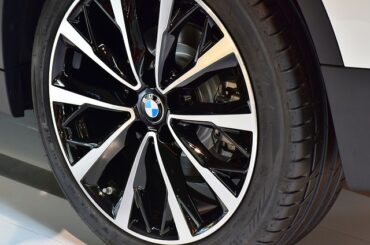Tow trucks are the unsung heroes of the roads, serving as saviors for stranded motorists when their vehicles break down or meet with accidents. These sturdy vehicles are equipped with the power to rescue and transport cars, trucks, and motorcycles to safety, making them an essential part of the roadside assistance ecosystem.
When faced with a roadside emergency, we often rely on tow trucks to come to our rescue. However, with different types of tow trucks available, each designed to meet specific towing needs, it’s natural to wonder which one is the most common and widely used in the industry.
In this article, we will delve into the world of tow trucks to shed light on the most prevalent type on our roads today. From their unique features to the advantages they offer, we will explore the reasons behind the popularity of the most common tow truck. So, let’s unravel the mystery and discover which tow truck stands out as the ultimate workhorse of the towing world.

Contents
The Flatbed Tow Truck: Versatility and Popularity
Among the diverse array of tow trucks found on the roads, the flatbed tow truck stands tall as a true champion of versatility and popularity. Its unique design and functionality make it a preferred choice for both motorists and towing companies alike.
Flatbed tow trucks are easily recognizable by their long, flat platform located at the back of the truck. This platform can be hydraulically inclined to the ground, creating a gentle slope that makes loading and unloading vehicles a breeze. Unlike some other tow truck types that require the towed vehicle to be lifted off the ground, the flatbed tow truck allows the vehicle to be securely placed on the platform, eliminating any potential damage that might occur during the towing process.
The loading process itself significantly enhances safety, both for the towed vehicle and other road users. When using a flatbed tow truck, the towed vehicle is driven or pulled onto the flat platform, eliminating the need for physical contact between the tow truck and the towed vehicle’s tires or undercarriage. This means less wear and tear on the towed vehicle and a reduced risk of additional damage during transit.
One of the main reasons for the widespread use and popularity of flatbed tow trucks is their ability to transport various vehicle types securely. Whether it’s a compact car, an SUV, a motorcycle, or even a small truck, the flatbed tow truck can handle them all with ease. The flat platform provides a stable and level surface for vehicles of different shapes and sizes, ensuring a smooth and safe journey to the desired destination.
Moreover, flatbed tow trucks are particularly favored when towing luxury or high-end vehicles, where any minor scratches or damage would be a significant concern. By securely placing the towed vehicle on the flat platform, the risk of cosmetic or mechanical damage is greatly minimized, providing peace of mind to both vehicle owners and towing professionals.

Comparison with Other Tow Truck Types
While the flatbed tow truck shines as the most common and versatile choice, several other tow truck types exist, each with its own set of advantages and limitations. Let’s explore these alternative tow truck options and understand why the flatbed tow truck continues to outshine them in popularity.
- Hook and Chain Tow Trucks: Hook and chain tow trucks were once widely used in the industry, but their prevalence has diminished over time due to certain drawbacks. These trucks use chains and hooks to secure the towed vehicle, which can result in potential damage to the vehicle’s undercarriage and body. The chains’ tension can cause scratches, dents, and other cosmetic issues, making it unsuitable for towing vehicles with delicate exteriors or low ground clearance. Moreover, the method of towing with hooks and chains may not be ideal for modern cars with advanced technology and complex front or rear structures, as it can cause further mechanical damage.
- Wheel-Lift Tow Trucks: Wheel-lift tow trucks have gained popularity as a more refined alternative to hook and chain tow trucks. They utilize a metal yoke, also known as a “stinger,” which is placed under the towed vehicle’s wheels to lift it off the ground. While this method reduces some potential damage to the towed vehicle’s body, it still poses a risk of cosmetic harm, especially to vehicles with low-profile tires or customized rims. Additionally, wheel-lift tow trucks might not be suitable for all-wheel-drive or four-wheel-drive vehicles, as lifting only two wheels off the ground can cause damage to the drivetrain.
- Integrated Tow Trucks: Integrated tow trucks are purpose-built for heavy-duty towing, handling large vehicles such as buses, trucks, and even airplanes. While they excel in their specialized domain, their size, weight, and complexity limit their everyday use for typical passenger vehicles. Integrated tow trucks are typically more expensive to operate and maintain, making them less practical for routine towing services.
Reasons for the Flatbed Tow Truck’s Popularity:
- Safety and Damage Prevention: The flatbed tow truck’s loading process, where the towed vehicle is driven or pulled onto the flat platform, ensures minimal contact and potential damage. This makes it a preferred choice for safely towing luxury vehicles or cars with low ground clearance.
- Versatility: The flatbed tow truck’s ability to transport a wide range of vehicle types, including cars, SUVs, motorcycles, and small trucks, makes it a go-to option for various towing needs, offering versatility unmatched by other tow truck types.
- Wide Applicability: Unlike some specialized tow trucks that cater to specific vehicle sizes or purposes, the flatbed tow truck’s broad applicability allows towing companies to serve a more extensive customer base and handle various roadside assistance scenarios efficiently.
Factors Influencing Tow Truck Popularity
The popularity and prevalence of tow truck types can vary significantly based on a multitude of factors. Let’s explore how geographic location, local towing regulations, towing company preferences, specialization, and the relevance of vehicle types influence the choice of tow truck type in specific regions.
Geographic Location and Local Towing Regulations:
- Terrain and Weather Conditions: In regions with challenging terrains or adverse weather conditions, such as mountainous areas or areas prone to heavy snowfall, flatbed tow trucks may be favored. Their ability to safely transport vehicles without causing damage makes them ideal for navigating difficult roads and adverse weather situations.
- Weight and Size Restrictions: Some regions have towing regulations that impose weight and size restrictions on tow trucks. Integrated tow trucks, designed for heavy-duty towing, may be more prevalent in areas where large commercial vehicles like buses and trucks require frequent assistance.
Towing Company Preferences and Specialization:
- Towing Company Fleet: The type of tow truck commonly used can depend on the fleet composition of towing companies. If a towing company primarily operates a fleet of flatbed tow trucks, they may be more likely to use them for a broader range of towing services.
- Specialization and Expertise: Some towing companies may specialize in particular services, such as exotic car towing or motorcycle towing. In such cases, they might use tow trucks specifically designed for those tasks, such as flatbed tow trucks for luxury car transportation or specialized tow trucks equipped with motorcycle carriers.
Relevance of Vehicle Types Commonly Towed:
- Urban vs. Rural Areas: In urban areas with a high concentration of passenger vehicles, flatbed tow trucks‘ versatility makes them a popular choice for handling various towing scenarios. In rural areas with more agricultural and industrial vehicles, integrated tow trucks may be more prevalent due to their ability to handle heavier loads.
- Vehicle Market Trends: The types of vehicles commonly used and sold in a specific region can influence the demand for certain tow truck types. For instance, regions with a higher number of luxury car owners might see an increased use of flatbed tow trucks to cater to these specialized vehicles.
It’s essential to note that the popularity of tow truck types can evolve over time as regulations change, vehicle trends shift, and towing companies adapt to meet their customers’ needs. Moreover, regional differences can significantly impact the prevalence of specific tow truck types, making it crucial for towing companies to stay versatile and responsive to their local market demands.

So, What is the most common tow truck?
Throughout this exploration of tow truck types and their prevalence, one tow truck stands out as the undisputed workhorse of the towing industry – the flatbed tow truck. Its versatility, loading safety, and ability to securely transport a wide range of vehicles have propelled it to the forefront as the most common choice for motorists and towing companies alike.
Selecting the appropriate tow truck for specific towing needs is of utmost importance. Whether it’s a luxury car, an all-terrain vehicle, or a heavy-duty commercial truck, choosing the right tow truck can make a significant difference in ensuring the safe and efficient transportation of the towed vehicle. The flatbed tow truck’s ability to accommodate various vehicle types and protect them from damage during loading and transit makes it a reliable and popular choice for everyday towing scenarios.
As technology continues to advance across industries, the tow truck industry is no exception. Innovations in tow truck technology hold the potential to revolutionize the way roadside assistance is provided. From enhanced safety features and automated loading systems to eco-friendly power sources, future tow trucks could further improve efficiency, reduce environmental impact, and offer even better services to customers.
In conclusion, the flatbed tow truck’s prominence as the most common type is a testament to its unmatched versatility and safety features. When facing a roadside emergency, it’s crucial to have confidence in the tow truck selected to rescue and transport your vehicle. As the towing industry continues to evolve, we can look forward to exciting advancements that will shape the future of tow trucks and elevate the standard of roadside assistance. By staying informed about the latest developments, towing companies and motorists alike can ensure a smoother, safer journey for all vehicles in need of a helping hand on the roads.
Wondering how often do you need to service your Toyota? Read it here.






